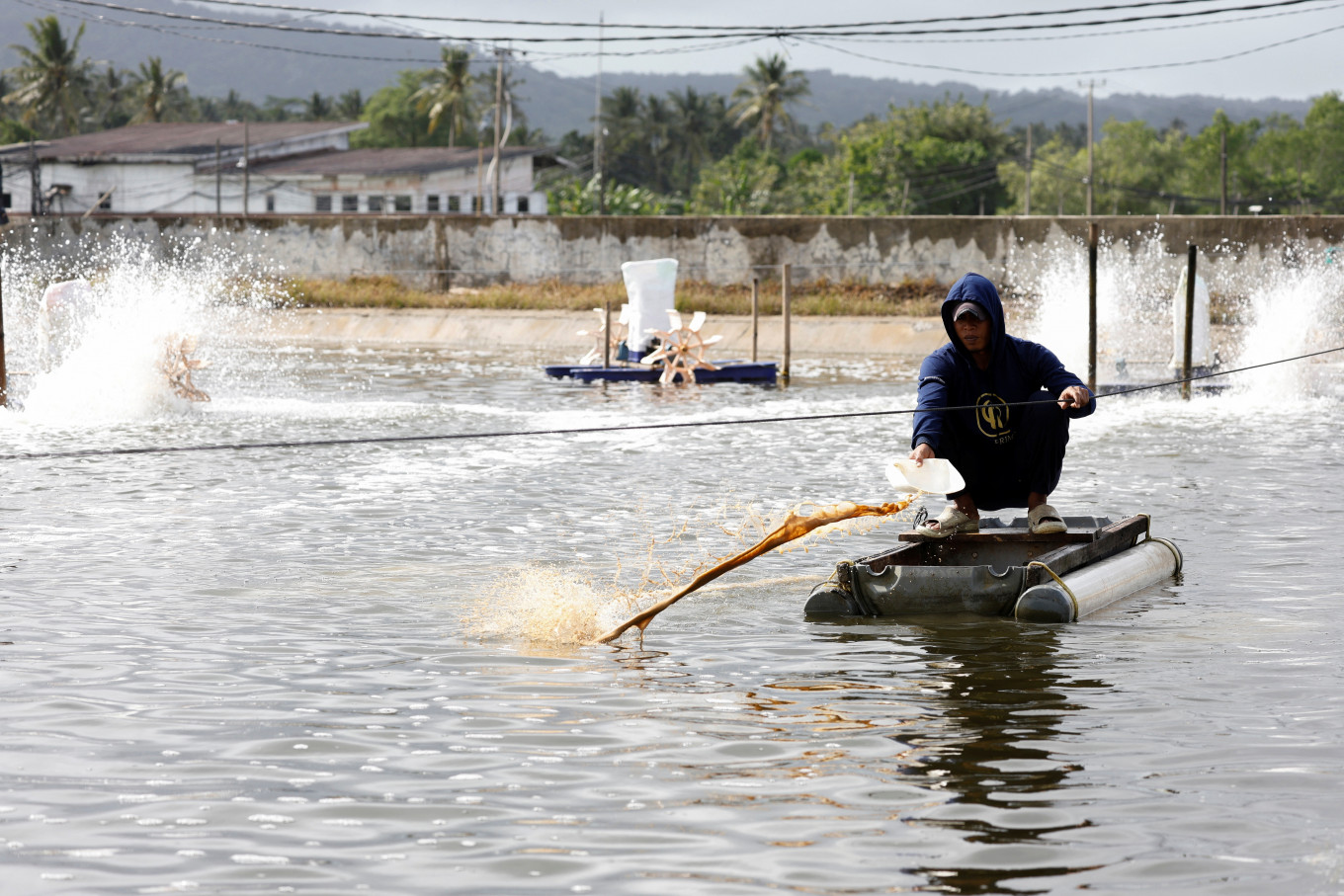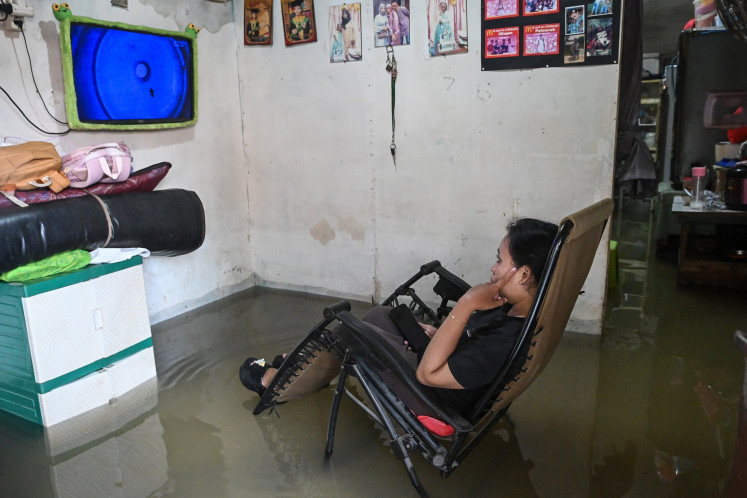Popular Reads
Top Results
Can't find what you're looking for?
View all search resultsPopular Reads
Top Results
Can't find what you're looking for?
View all search resultsHit by US tariffs, Indonesia plans to sell shrimp to China instead
Change text size
Gift Premium Articles
to Anyone
A
t a shrimp farm in Indonesia, more than 16,000 km from Washington, DC, US President Donald Trump's import tariffs have left Denny Leonardo's expansion plans in disarray.
Leonardo had aimed to add about 100 new ponds this year to his 150-pond farm on the southwestern tip of Java Island but was forced to reconsider when US orders dried up in the wake of Trump's initial tariff threats in April.
And while the latest 19 percent tariff, agreed with Washington in July and due to take effect this week, is less than the initial 32 percent, Leonardo is counting the cost to his business.
"With the US pressuring Indonesia's exports, everyone is eagerly looking for new opportunities to diversify, to reduce their dependence on the US," the 30-year-old prawn farmer said after July's announcement.
The United States is the biggest market for Indonesian prawns, buying 60 percent of the country's $1.68 billion in shrimp exports last year.
Andi Tamsil, the head of Indonesia's shrimp farmers' association, estimates the 19 percent tariffs could see total exports plunge by 30 percent this year compared to 2024, putting the livelihoods of one million workers at risk.
Even with July's agreement, most US customers are still putting their shrimp purchases on hold, said Budhi Wibowo, who heads an association of seafood businesses. He notes the new rates put Indonesia at a disadvantage against Ecuador, the world's top producer of farmed shrimp, whose import tariff was set at 15 percent.
China is the world's biggest importer of shrimp by volume, but Indonesians have preferred to sell to the US where they could get better prices, Budhi said.
Before the tariffs, China typically bought only 2 percent of Indonesia's exports of the seafood.
Now the industry is having to work hard to promote its products to Chinese buyers.
In June, Tamsil, of the shrimp farmers' association, travelled with a delegation of industry representatives to the southern Chinese city of Guangzhou to meet importers, restaurant owners and agri-commerce platforms. More trips are planned.
"We have a very big opportunity in China that imported around 1 million tonnes of shrimps," Tamsil said. "Imagine if we could take just 20 percent of China's import market."
Budhi, of the seafood association, said Indonesia could also diversify exports to the Middle East, South Korea, Taiwan, and the European Union, especially as Jakarta is close to signing a free trade agreement with Brussels.
Back on his farm, Leonardo is confident his business, which he inherited from his father, can weather the US tariff storm. But it might not expand as quickly as he once hoped.
"I am optimistic that my company could survive, because there will still be supply and demand. But for growth, I am not that optimistic," Leonardo said.










